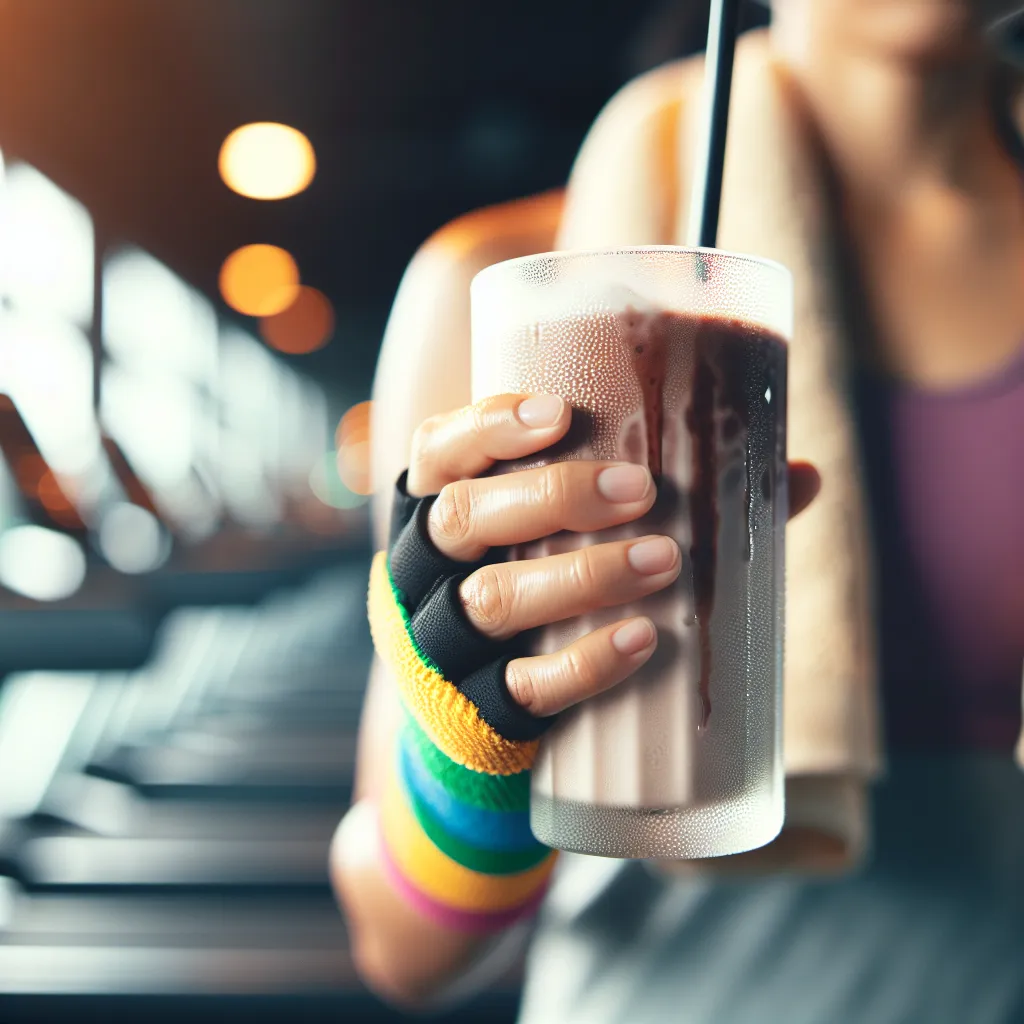Recovery drinks are an essential topic in health and fitness discussions, making them a valuable vocabulary item for IELTS candidates. Let’s explore this term in depth to enhance your language skills and boost your IELTS performance.
Definition and Pronunciation
Recovery drink (noun): A beverage consumed after physical activity to replenish nutrients and aid in muscle recovery.
Pronunciation: /rɪˈkʌvəri drɪŋk/
Context and Usage
Examples in Context
-
After an intense workout, Sarah always prepares a protein-rich recovery drink to help repair her muscles.
Analysis: This sentence demonstrates the typical use of recovery drinks in a fitness context, emphasizing their purpose in muscle repair. -
The marathon organizers provided recovery drinks at the finish line to help runners rehydrate and replenish electrolytes.
Analysis: Here, we see the application of recovery drinks in a large-scale sporting event, highlighting their role in rehydration and electrolyte balance. -
Nutritionists recommend consuming a carbohydrate and protein recovery drink within 30 minutes of completing a strenuous exercise session.
Analysis: This example showcases the technical aspect of recovery drinks, mentioning specific nutrients and timing recommendations. -
The new sports center offers a variety of recovery drinks tailored to different types of workouts and individual nutritional needs.
Analysis: This sentence illustrates the customization aspect of recovery drinks, suggesting that they can be specialized for different purposes. -
Some athletes prefer natural recovery drinks like chocolate milk over commercial sports beverages.
Analysis: This example introduces the concept of alternative or natural recovery drinks, broadening the understanding of what can constitute a recovery drink.
Common Contexts
Recovery drinks are frequently discussed in:
- Fitness and gym environments
- Sports nutrition literature
- Endurance sports events (marathons, triathlons)
- Health and wellness blogs
- Scientific studies on exercise physiology
 sports-recovery-drink
sports-recovery-drink
Vocabulary Analysis
Word Structure
- Recovery (noun) + Drinks (noun)
- Recovery: Re- (prefix meaning “again”) + Cover (root) + -y (suffix forming nouns)
Synonyms and Related Terms
- Post-workout beverages
- Rehydration drinks
- Sports recovery shakes
- Nutrient replenishment drinks
- Muscle recovery beverages
Memorization Techniques
Mind Mapping
Create a mind map with “Recovery Drinks” at the center, branching out to:
- Ingredients (protein, carbohydrates, electrolytes)
- Benefits (muscle repair, rehydration, energy replenishment)
- Types (commercial sports drinks, natural alternatives)
- Timing (post-workout, during endurance events)
Visualization Technique
Imagine yourself finishing an exhausting workout. You’re sweating, your muscles are tired, and you reach for a brightly colored bottle. As you drink, visualize the liquid revitalizing your body, replenishing what you’ve lost during exercise. This mental image can help cement the concept and purpose of recovery drinks in your memory.
Practice Exercises
-
Gap Fill:
Complete the sentence: “After the triathlon, competitors were offered to help them restore their energy levels.” -
Synonyms Exercise:
Provide two synonyms for “recovery drinks” using the terms discussed earlier. -
IELTS Writing Task 2 Practice:
Write a paragraph discussing the advantages and potential disadvantages of using commercial recovery drinks versus natural alternatives. Use at least three of the vocabulary terms we’ve covered. -
IELTS Speaking Part 2 Task:
Describe a time when you used a recovery drink. You should say:- What the drink was
- When you used it
- How it affected you
And explain why you chose that particular drink.
-
Collocations:
Create three sentences using the following collocations:- “Effective recovery drink”
- “Customize recovery drinks”
- “Recovery drink ingredients”
Conclusion
Mastering the vocabulary around recovery drinks can significantly enhance your performance in the IELTS exam, particularly in topics related to health, fitness, and nutrition. Remember to practice using these terms in various contexts, and don’t hesitate to explore related vocabulary to broaden your linguistic toolkit.
We encourage you to share your experiences with learning and using this vocabulary in the comments section below. Have you encountered “recovery drinks” in your IELTS preparation or in real-life situations? How do you plan to incorporate this term into your language practice?
For more nutrition-related vocabulary that could boost your IELTS score, check out our article on protein shakes, another essential topic in health and fitness discussions.


